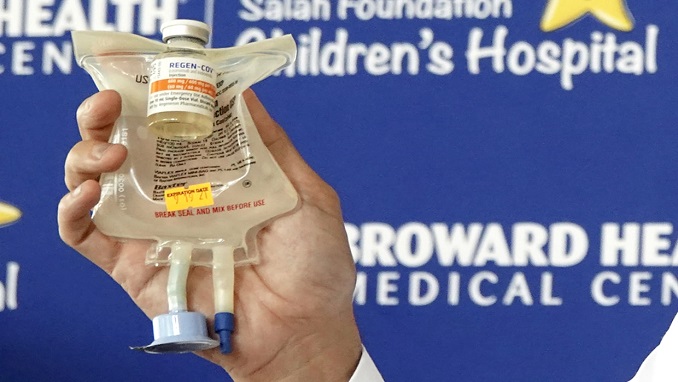
Stressing that it’s highly unlikely for them to be active against the omicron variant, the US Food and Drug Administration (FDA) has revoked its emergency use authorizations for Regeneron and Eli Lilly’s monoclonal antibodies treatments, making the two therapeutics virtually unavailable for the US patients.
These lab-produced cells that mimic the work of a human immune system are helping a patient’s body deal with the infection with harmful pathogens such as viruses, like SARS-CoV-2.
Regeneron’s antibody “cocktail”, which is relatively expensive and was usually administered to prevent severe symptoms in high-risk patients, was famously used in then-President Donald Trump’s treatment of when he contracted Covid-19 in October 2020.
With the authorization revoked, their use is limited to only when the patient has been infected with or exposed to a variant that is susceptible to these treatments though FDA notes it may re-authorize their use in the future.
The health officials in Florida, the conservative state famous for refusing to require residents to take vaccines and has made the monoclonal antibodies drugs’ availability the core of its response to Covid-19, blasted the FDA’s decision.
The Florida Department of Health disagrees with it because FDA failed to provide clinical evidence to prove it was scientifically sound and stressed that the state is now being forced to close its monoclonal antibody treatment sites until further notice.
According to a statement from Gov. Ron DeSantis, more than 2,000 appointments for the treatment in the state were canceled on Tuesday alone.
Although FDA underscored that other Covid-19 treatments remained available, including Pfizer and Merck’s pills, various antivirals like Gilead’s remdesivir and Sotrovimab, which is among the monoclonal drugs Florida uses.
But, as the Tampa Bay Times reported, Sotrovimab treatment was rarely used with only 140 doses a week being administered by Florida hospitals compared to 2,737 doses of Regeneron over the same period.

Be the first to comment